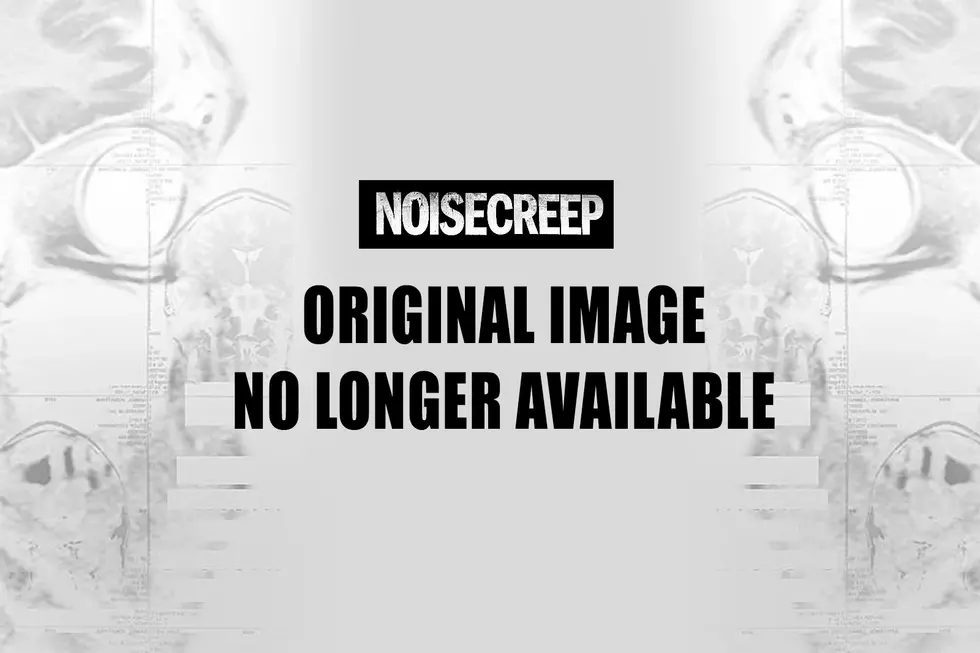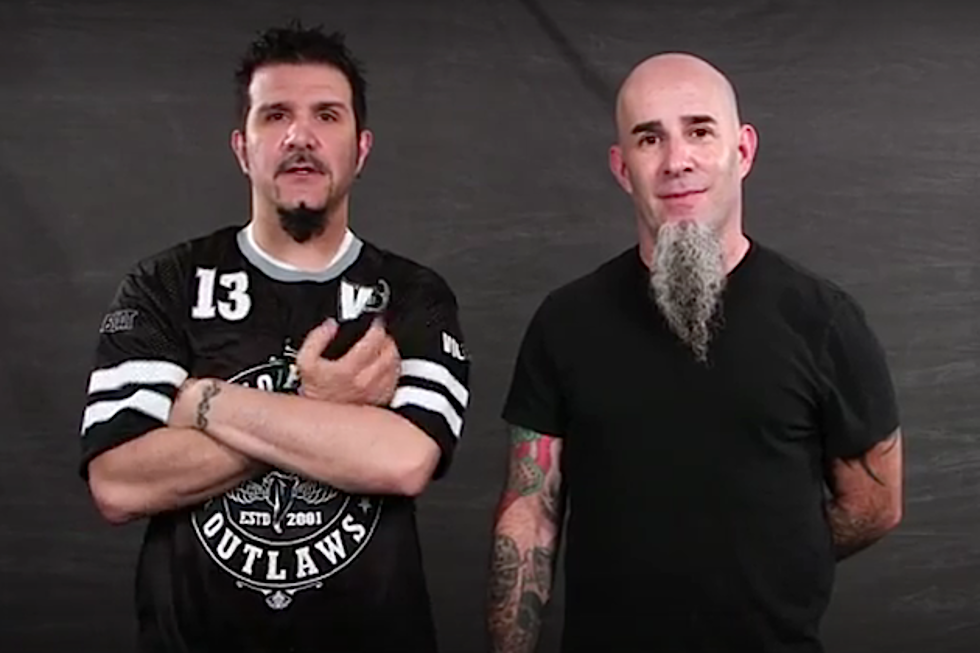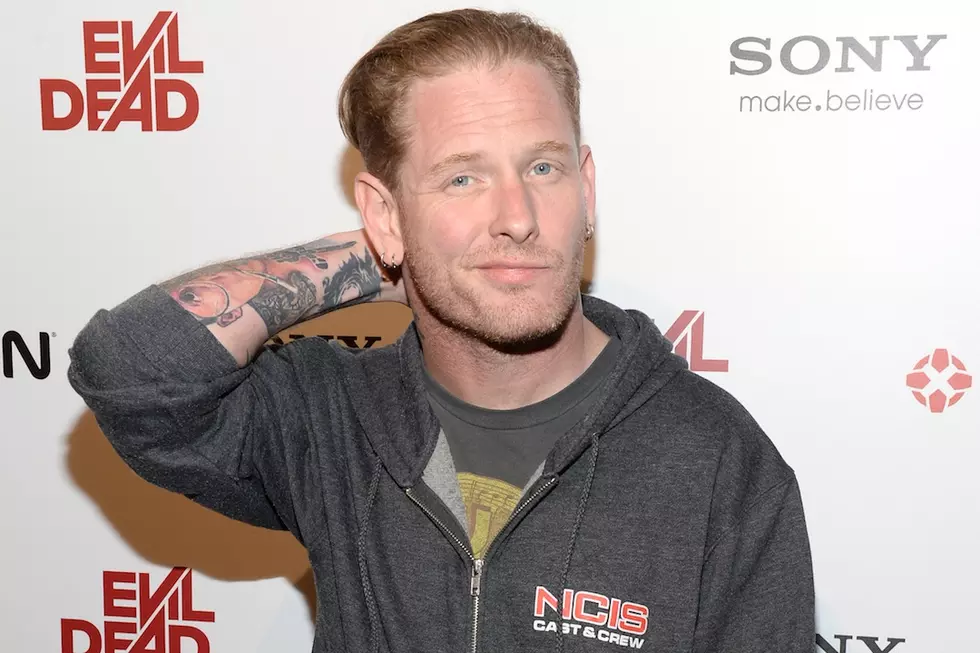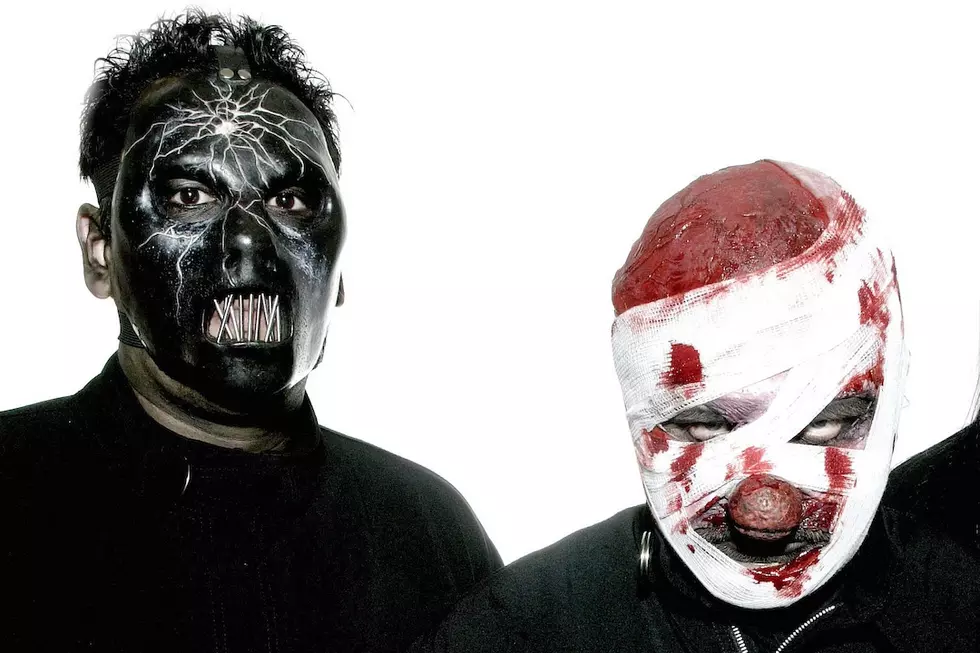
Melechesh’s Ashmedi Was Exiled by His Family for Playing Metal
Melechesh vocalist/guitarist Ashmedi has quite the autobiography. He is originally from the politically and religiously charged area of Jerusalem and was raised solely by his mother, having never met his father. While born in Israel, he is not Israeli nor is he Palestinian, but he still found himself in the middle of a battle-ravaged, volatile region in which he belonged to neither side.
He turned to music as an escape, forming the blackened thrash band Melechesh in 1993 as a means of expressing himself, but it also had a serious consequence. He was exiled by his family. He remained undeterred, though; he scored a record deal, moved to Europe and continued to fight the good fight ever since, having put out a spate of records in the past decade.
"Well nothing changed, ironically, when I went to the Holy Land for a show in 2004," Ashmedi told Noisecreep about remaining cast out by his family even after returning home to perform. "My brother and his friends showed up at the gig, and he was shocked seeing all these fans and whatever. And just like in the movies, he tried to go the backstage room and the security did not let him [laughs.] He called to a band member later and they did let him in. It was almost an '80s movie montage moment!"
The next day, his mother contacted him. "She said, 'Hey, I heard you are good at playing the guitar,'" Ashmedi said. "This was after the release of 2003's 'Sphynx.' They don't like what I do. That's normal. But I sacrificed a lot, including a great-paying career. I have an MBA degree and I turned down jobs that pay extremely well and are very easy in order to pursue my dream and calling, which is Melechesh." Ashmedi admitted he does try and return to Jerusalem once a year, but he hasn't made it in the past two due to a hectic touring schedule.
Melechesh have the distinction of being the first signed band from Jerusalem. "I had to navigate the band in a conflict that was unnecessary, but we made it happen against all odds, biases from our community and the metal scene," Ashmedi recalled. "We had to literally invent a subgenre to get noticed, and now it pays off. For us, life is a journey ... a sonic magick journey and certainly not mundane. We make sure it is not!"
Growing up amid the turmoil of the Middle East certainly isn't mundane, either. "It felt normal to me," Ashmedi said. "But now I see on MTV, or whatever, these teens being counseled for the mundane things such as not being invited to the prom. Well, yes I saw a lot of strange things like deaths, injuries, sorrow. And it all is unnecessary, honestly. I have seen Palestinian youths die from Israeli bullets, and I have seen Israelis die from bombs in buses and cafes."
The things he saw shaped his political worldview, as well. Ashmedi said, "Politics, to me, is the art of lying and the art of rationalizing the deaths. One of my childhood neighbors and schoolmates was shot five times by a sniper. He was only 14. I saw his photo in the morgue with the five bullet holes. What affected me the most is his missing front teeth, as he landed on his face. I got alcohol and drank heavily. I was 12."
Music eventually became a coping mechanism for Ashmedi, though. "Surely, music kept me busy and distracted and I could scream my rage out. Maybe that's why I was tempted to do this dark form of music," he reasoned. "Ironically, on the news, you could see in the background our rehearsal room entrance. Luckily the place was a war bunker, so we were underground, thanks to the depth of the room and volume of our guitars."
As for his solo upbringing, Ashmedi's father died in a car accident when he was just five months old, which indirectly helped lead him down his sonic path. "I never had a father figure. My brother tried taking over, but when my dad died he was only 7 years old, so he tried his best but did a lousy job. I think everything led me to turn to music -- and the aggressive type -- I suppose! I felt empowered, understood and safe there."
Obviously Ashmedi took a lion's share of hardships in his life and turned them into productive efforts. "I did not turn to crime and did not become a recruit in political crap," he said. "Music kept me in one domain. But am I in a positive head space." Even with the positive head space, Ashmedi still admitted to having daily struggles and questions, saying, "It is trying at times, but I do my best to focus on the music and go forward. I wish I was a more positive person, though."
For those musicians or music fans out there living in volatile situations where hope is in short supply, Ashmedi is living proof that music can be salvation, regardless of your spiritual beliefs. "Follow your heart, avoid the drama and the mundane," Ashmedi said, offering a little sage-like, hard-earned advice. "Create. Follow your dreams and ambitions. It is all possible, but yes you got to work a little bit harder, which is not a bad thing. It will develop you musically and will enhance your character."
Melechesh will tour America in March with Rotting Christ.
More From Noisecreep








